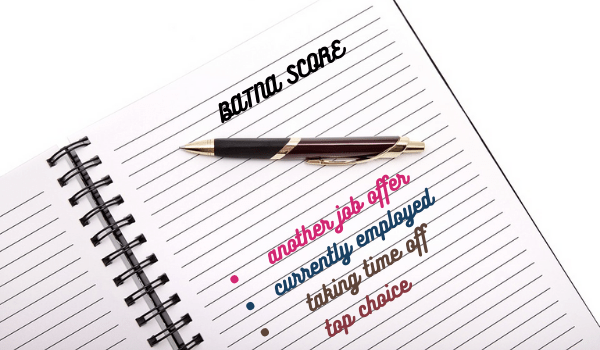Salary negotiation is tricky, for the employer as well as the candidate. More for the candidate, because a wrong estimation can mean losing out on an opportunity.
From an organisation’s perspective, it is already negotiating with several candidates for that same position and would be ready to hire another person who will do the same job for a lower price – unless it’s the role of a specialist. This puts the employer at an advantageous position at the negotiating table. However, for the candidate, that particular job may be a make or break situation.
It is important for candidates to rightly evaluate themselves, and that is where the BATNA score comes handy.
Short for ‘best alternative to negotiated agreement’, the term BATNA was coined by Harvard authors, Roger Fisher and William Ury, in their book, Getting to Yes: Negotiating Agreement Without Giving In.
BATNA provides four situations to the candidates as follows:
• Do you have another job offer?
• Are you currently employed?
• Would you consider taking time off?
• Is this job your top choice?
Now for a positive answer to the first three questions, the candidates get one point, but for the fourth question, a negative answer gets one point. So the maximum score is four and minimum is zero.
For candidates with a BATNA score of 0, it is advisable to take up the offer immediately, as they are on the weakest side. There is absolutely no scope for any negotiation. They will have to be prepared for the employer trying to cut costs and even offering below-the-market standards.
Those who manage to get a BATNA score of one, may still try to negotiate, but they need to keep in mind that they have very limited strengths to negotiate. In this case, the negotiation will depend on the candidates’ negotiating prowess, and the ability to hold on to their stand. It can be a matter of sheer luck, and the decision can swing in either direction, so one has to be really careful.
A BATNA score of two is good, and it provides some scope for negotiation. In this case, the outcome of the negotiation may depend on the external market situation, and the individual market value of the candidates. If both are favourable, the candidates may be somewhere near their aspirational salary.
Those with a BATNA score of three and above, can be assured of having an upper hand at the negotiation table. They can actually call the shots during the negotiations. They are the ones companies will like to get on board even at a higher price.
Salary negotiations require analytical thinking, clear communication, emotional intelligence, and context-specific knowledge. Candidates are advised to not go overboard. For any job, the employer has already fixed an upper limit of the salary before getting on to the negotiation table. Now, any attempt to cross the upper limit will be quashed by the employer, and he may just leave the negotiating table. This will only mean that the candidate has missed out on the opportunity. It’s good to be ambitious, but overambition may lead to the candidates failing to evaluate their own strengths and capabilities.
BATNA has become even more relevant today, because many have lost their jobs during the pandemic. Yet, these job seekers expect a 30-40 per cent jump over their current salaries. It is good to be desirable, but being adamant and stuck on one’s previous salary can be devastating.
Similarly, there could be a BATNA score for the employers and organisations as well. Both for the employers and the candidates, evaluating the opponent’s BATNA score can turn out to be a master stroke in terms of negotiating tactics.
Some companies also use WATNA, or the worst alternative to a negotiated agreement at the negotiating table. Organisations pre-evaluate the situation and think of the worst outcome, if and when they need to leave the negotiating table.



